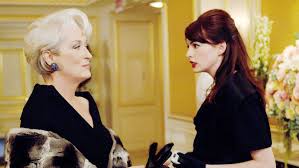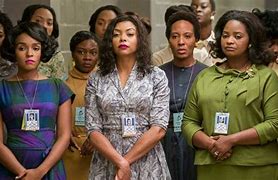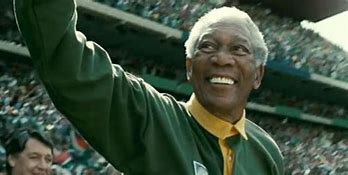There are many lists of best films about leadership, organizations and business. They’re all different, suggesting that everyone has different movie preferences. Here are links to five examples:
10 Movies Every Business Student Must Watch (Aditya Singhal on Poets and Quants)
The 50 Greatest Business Movies (iMDB)
Ten Greatest Business Movies – Forbes
The Best Movies About Business (crowd-sourced, ranker.com)
Best Business Films (Business School Deans, 2011)
No film appears on all five lists, and only 8 appear on more than two. Here are those 8 ranked by the number of lists they’re on:
|
The Godfather, 1970 |
|
Citizen Kane, 1941 |
|
It’s a Wonderful Life, 1946 |
|
Wall Street, 1987 |
|
Modern Times, 1936 |
|
Norma Rae, 1979 |
|
The Godfather II, 1974 |
|
The Insider, 1999 |
Those are all are great films, but they are all more than 20 years old, and only one (Norma Rae) has a female protagonist. Here are some films I like that are more recent, and include more women and people of color:

The Devil Wears Prada (2006)
Meryl Streep plays a demanding and manipulative Miranda Priestly, editor of Runway magazine and czarina of fashion. One clip I use often shows Andy (Anne Hathaway) in her role as 2d assistant, showing up at Miranda’s elegant New York townhouse late at night, where she learns that Miranda wants her instead of Emily to go along on the Paris fashion trip. It’s followed directly by a scene the next morning where Miranda tells Andy to call Emily now and give her the bad news about Paris. Classic scenes for examining how to cope with a difficult boss. Another favorite is Andy’s visit to art director Nigel to complain about how badly her boss is treating here. Students can see that Andy and Nigel are operating in different frames.

Hidden Figures (2016)
Set in the 1960s, the film tells the story of a group of African-American women who were recruited as human “computers” by NASA in the days just before the advent of digital computers that could do the job better than humans. Two clips that I like to use: (1) Mary Jackson (Janelle Monae) goes to court to persuade a senior white judge to let her take a course she needs at a white school; (2) Katherine Johnson (Taraji Henson) fights to get permission to attend a key meeting.

Invictus, (2009)
An inspiring tale of how Nelson Mandela (Morgan Freeman) allied with South Africa’s rugby team, the Springboks, as a symbolic vehicle to unite Blacks and whites in a badly divided nation. Mandela rallies the team and the nation as the Springboks make an improbable run to win the 1995 Rugby World Cup.
Office Space (1999)
After a slow start when it was first released, Office Space has become a cult classic. Highlights include Gary Cole’s turn as Bill Lumberg, one of the smarmiest bosses ever, the two Bobs as everyone’s worst fears about consultants, Jennifer Anniston as Joanna, a naive young woman trying to survive in a dead-end job, and Ron Livingstone’s role as Peter, the hapless protagonist in cubicle hell. Favorite scenes include the famous TPS report encounters after Peter’s arrival at work near the start of the film, and Joanna’s two encounters around “flare” with her boss at the burger joint where she hates to work. Her boss, by the way, is played by director and screenwriter Mike Judge; he does a nice job of portraying the mixed messages with which bosses often drive subordinates nuts.
The Founder (2016)
Michael Keaton stars as Ray Kroc, the not-very-successful milk-shake-machine salesman who persuaded the McDonald brothers to let him take over franchising the hamburger stand they created. Kroc ultimately wrested control of the business from the brothers and turned a small business in southern California into the world’s largest restaurant chain. In a perfect world, there might have been a beautiful partnership between the two brothers who basically invented fast food and the business visionary who knew how to take it global, but in fact this was a very unhappy marriage. The film encourages you to root for the McDonald brothers.
The Pursuit of Happyness,( 2006)
In a film based on a real story, Will Smith plays Chris Gardner, who encounters a series of misfortunes at the start of the film. His wife leaves him, he’s evicted from his apartment, and he finds himself out on the street as a homeless, single father trying to make ends meet and take care of his son (played by Will’s son Jaden). Living in a homeless shelter and desperately needing to improve his situation, he enters a competition for a job as a stockbroker. No one is more surprised than he when he succeeds.
Freedom Writers (2006)
Hilary Swan plays a new, young teacher in an urban high school who struggles to build relationships with her students in a context of racial conflict, violence, gangs and unsupportive bosses. She stubbornly persists in seeing possibilities in the “unteachables” she’s been assigned, gradually builds their trust, and gets them writing about their own lives and experiences.
The Iron Lady, (2011)
Almost everyone loves Meryl Streep’s portrayal of Margaret Thatcher, the controversial and formidable “Iron Lady” who became first woman to become an elective head of a western government, but not everyone loves the film. It is set up as a series of reminiscences by an aging Thatcher as she looks back over her life and imagines conversations with her deceased husband, Denis. Thatcher’s persona and political success provide material for explorations of issues around gender and leadership.
The Assistant (2019)
This is a subtle film, and some viewers complain that nothing much happens as we watch a young woman, Jane (Julia Garner), try to make it through a day as a junior assistant to a powerful entertainment mogul. She makes coffee, changes the paper in the copying machine, orders lunch, take messages and does the menial things that assistants do. Gradually, indirectly, and subtly, Jane gets clues that she’s working for a Harvey Weinstein type in a workplace that demeans and abuses women. Her efforts to raise her concerns with HR are about as successful as you might expect. It’s a good film for exploring the powerlessness that workers at or near the bottom of an organization often feel, and for exploring questions about what, if anything, you can do if you are the victim of workplace abuse.